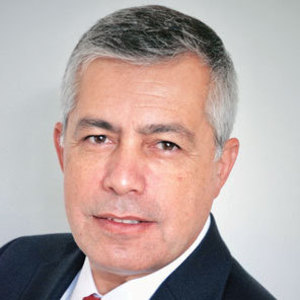A Breakthrough Biomass Fuel




October 26, 2018
BY José-Luis Rivas
There are many efforts from different industries to find solutions that can help us and our children live in a better, cleaner world. Among many others, three of the most important are reducing CO2 emissions, the initiative to diminish the pollution of plastics from the oceans, and the development of sustainable alternatives to fossil fuels. What if a solid fuel made mainly from biomass could help with more than one of these efforts?
ERS Fuel Inc. has created precisely that. Manufactured from woody biomass scientifically combined with a specific polymer, its unique fuel puck has capabilities that make it very versatile on multiple levels that go beyond what was the original idea when invented. Manufactured in Canada, with a pilot facility in Stratford, Ontario, the equipment requires minimal maintenance and very low energy consumption to operate. The technology has been in research and development for three years already, and the process is designed with maximum levels of mean time to failure to ensure that the effective production time is not affected.
The ERS Fuel puck has a calorific value as high as Bituminous coal, 70 percent less CO2 emissions than coal, is virtually odorless and smokeless, and even more impressive, it’s water resistant.
How can ERS Fuel be applied? It can be cofired with coal for energy generation, it can be used for more efficient home heating in wood stoves, and distributed as a survival fuel because of its water resistant capability, all while helping to divert polymers from landfills. The production process of the fuel puck can also utilize burned wood from forest fires, giving those trees a second life as an energy fuel, helping reduce landfilling and losses from fires. Other products accepted as raw material by this technology are coffee cups, wax-coated produce boxes, sawdust, grocery bags and milk cartons.
ERS Fuel was recently part of a Canadian trade delegation to Paris, where John Small, cofounder of the company, had the opportunity to meet with industry leaders of the renewable energy sector and presented the fuel puck to a number of executives who expressed significant interest in testing the product. The technology is also being explored as a way to reduce the cost of fuel and power generation in Canada’s remote, northern and First Nations communities, into which the Canadian government currently flies diesel fuel. This renewable fuel could replace that diesel and have a significant impact on cost and environment.
ERS Fuel’s business model is to sell and license the technology for industrial usage. The company plans to build a commercial-scale facility to service customers with fuel for home heating. This new technology is a giant leap toward a cleaner environment and will divert millions of pounds of waste from landfills annually.
Author: José-Luis Rivas
Business Development Director, ERS Fuel Inc.
www.ersfuel.com
joserivas@ersfuel.com
Advertisement
Advertisement
Upcoming Events





